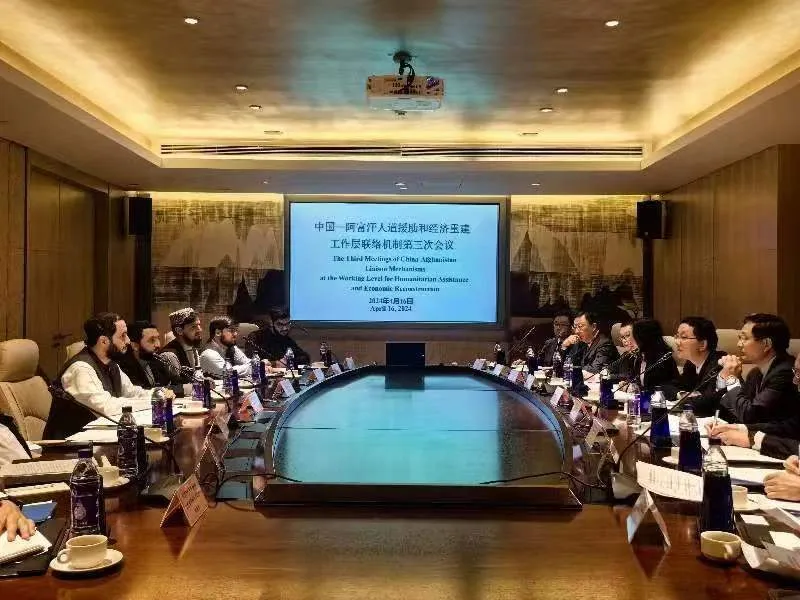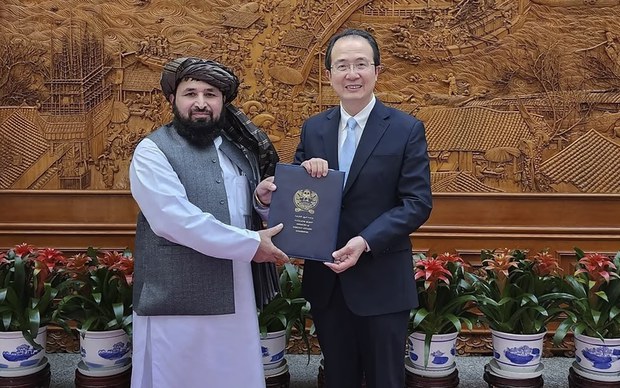Beijing (Kubha News) – The third session of the Afghanistan-China Economic Cooperation Mechanism, with officials from the Chinese Foreign Ministry and representatives from the Taliban Foreign Ministry, was held in Beijing on Wednesday.
Representatives from the ministries of industry and commerce, mines and petroleum, refugee repatriation, and natural disasters of the Taliban government and their Chinese counterparts also participated in this meeting.
According to a statement from the Chinese Foreign Ministry, led by Liu Jinsong, head of the Asian Department at the Chinese Foreign Ministry, and Zaker Jalali, head of the Third Political Department at the Taliban Foreign Ministry, practical cooperation between Kabul and Beijing and Chinese humanitarian aid to Afghanistan were discussed during the meeting.

The Chinese Foreign Ministry statement quoted Liu Jinsong as saying that based on President Xi Jinping’s recommendation, Beijing has adopted a principled approach in its relations with the Taliban government, emphasizing mutual interests and friendly relations with all Afghans.
Mr. Liu stated that China respects Afghanistan’s national sovereignty and religious and patriotic values and will never interfere in Afghanistan’s internal affairs.
Although this Chinese official has repeatedly called for the release of Afghanistan’s frozen assets by the United States and criticized political pressures on the Taliban government, the statement from the Chinese Foreign Ministry referred to them as the “interim government of Afghanistan” and urged them to respond positively to some of the international community’s demands, especially the formation of an inclusive government.
Zaker Jalali, head of the Third Political Department at the Taliban Foreign Ministry, thanked China for sending an ambassador to Afghanistan and accepting the Taliban’s ambassador in Beijing, and requested China to assist in Afghanistan’s economic growth based on its development experiences.

Liu Jinsong, head of the Asian Department of the Chinese Foreign Ministry, stated in the meeting that his country seeks to expand economic relations with Afghanistan and wants to facilitate Afghanistan’s economic growth by joining the “Belt and Road” Initiative.
Chinese authorities are also striving to include Afghanistan in the Belt and Road Initiative beyond increased investment in Afghanistan’s mining sector. This project, which has been ongoing for several years in Pakistan.
While the Taliban government recently reported progress on the Wakhan transit corridor project, Chinese media have expressed concerns about the negative consequences of this project due to increased security threats and the expansion of terrorist activities in Afghanistan.
Currently, the annual trade volume between Afghanistan and China amounts to $1.33 billion, with Afghanistan’s exports accounting for only $57 million, while the rest comprises imports from China.
